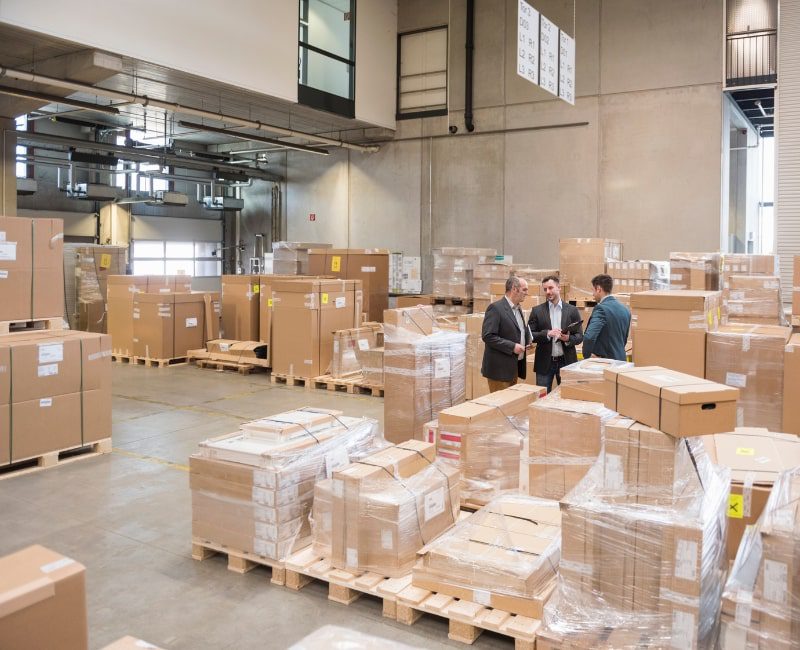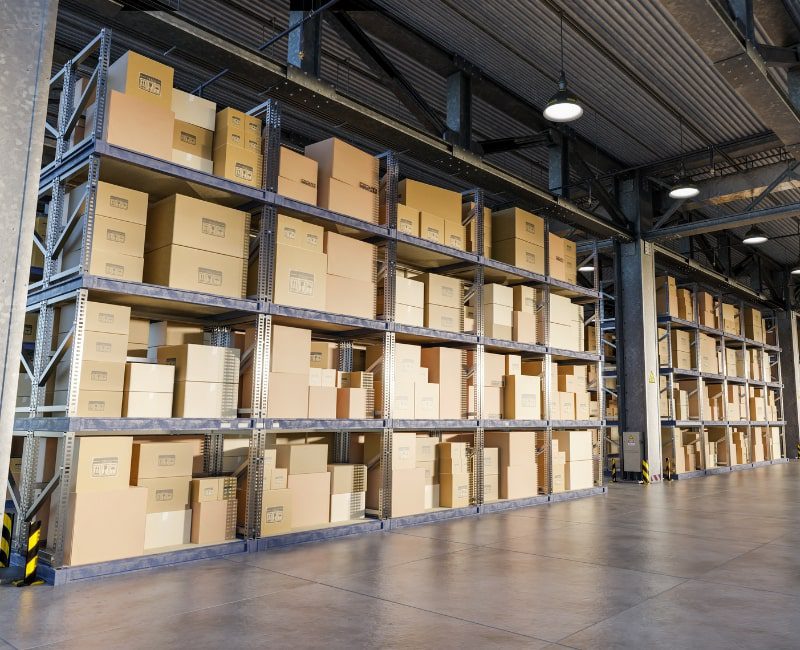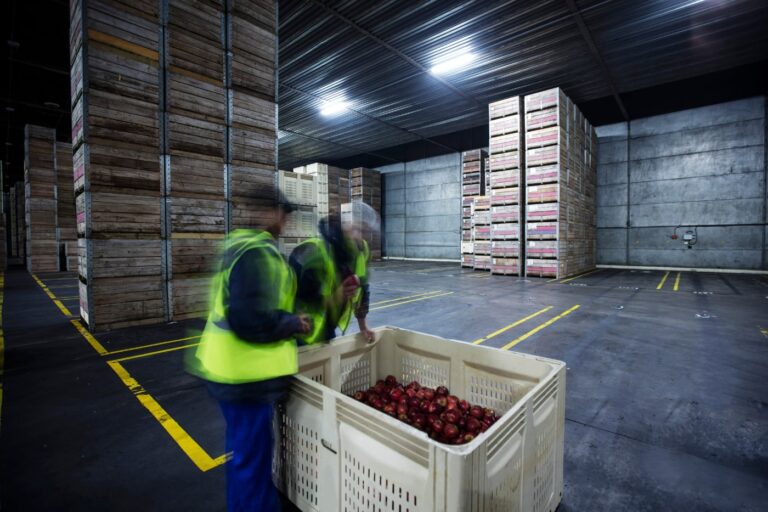Choosing the right 3PL provider is about forming a strategic partnership that will accelerate business success. The complexities of supply chain management demand a careful selection process to align the unique needs of a business with the capabilities of a reputable 3PL partner.
At its core, a 3PL acts as an extension of a company’s logistical functions, handling various aspects of the supply chain process. From inventory management to transportation optimization, 3PL partners bring expertise and specialized services that allow businesses to focus on their core competencies. This article will provide a step-by-step approach to help your business find the perfect logistics partner, encompassing the assessment of specific business requirements, evaluation of technological capabilities, and ensuring regulatory compliance.
Assessing Your Logistics Needs
Before beginning the search for a 3PL partner, businesses should always undergo a comprehensive assessment of their logistics needs. Outlining your business requirements and identifying potential pain points in your current logistics processes is a critical step.

Outlining Your Business Requirements
Volume of Goods: Begin by evaluating the scale of your operations. Analyze the quantity and frequency of goods that flow through your supply chain. Understanding the volume of goods is essential in determining the capacity and scalability your chosen 3PL partner should possess.
Specific Industry Requirements: Different industries have distinct logistics demands. Identify any industry-specific requirements or regulations that may impact your logistics processes. A 3PL provider with experience in your industry will be equipped to navigate these aspects of your supply chain.
Identifying Pain Points in Your Current Logistics Process
Bottlenecks: Pinpoint areas in your current logistics flow where bottlenecks occur. Whether it’s delays in transportation, inefficient warehouse management, or communication gaps, recognizing bottlenecks is crucial for addressing operational inefficiencies.
Areas for Improvement: Evaluate your existing logistics processes for areas that can be enhanced. This could involve streamlining order fulfillment, reducing lead times, or optimizing inventory management. Identifying these improvement areas sets the stage for selecting a 3PL partner capable of addressing your specific needs.
Researching Potential 3PL Providers
Once you’ve identified your business’s unique needs, the next step is researching potential partners. By thoroughly considering the following key factors, you can make an informed decision and ensure you find a 3PL partner that is a good fit for your business goals.

Industry Reputation and Experience
Case Studies and Success Stories: Explore case studies and success stories of 3PL providers in your area. Analyze how they have successfully addressed challenges similar to yours. A reputable provider should have a track record of delivering tangible results and positive outcomes for their clients.
Years of Operation in the Industry: Consider the longevity and experience of potential 3PL partners. A provider with extensive years of operation in the industry is likely to possess a deep understanding of logistics intricacies, industry trends, and the ability to navigate challenges effectively.
Service Offerings
Warehousing and Distribution: Assess the warehousing and distribution capabilities of each 3PL provider. Ensure they can handle your storage needs efficiently, with considerations for inventory management, order fulfillment, and distribution networks. A robust warehousing system is crucial for seamless supply chain operations.
Transportation Management: Examine the transportation management services offered by potential providers. Evaluate their capabilities in optimizing transportation routes, managing carriers, and ensuring timely deliveries. A comprehensive transportation solution contributes significantly to the overall efficiency of your logistics operations.
Technology Solutions: In the digital age, technology plays a pivotal role in logistics. Assess the technological solutions offered by each 3PL provider. Look for capabilities such as real-time tracking, data analytics, and integration with your existing systems. A technologically advanced provider is better equipped to enhance visibility and efficiency in your supply chain.
Evaluating Technology and Systems
The next step in finding the perfect logistics partner focuses on evaluating the technology and systems offered. By thoroughly examining the technology and systems provided, you can choose a 3PL partner that not only meets your logistical needs but also aligns with modern technological standards. A provider with advanced IT infrastructure and a commitment to data security ensures a reliable and technologically adept partnership for your supply chain operations.

IT Infrastructure
Tracking and Visibility: Assess potential partners’ tracking and visibility capabilities. A robust system should provide real-time insights into the movement of your goods throughout the supply chain. Tracking mechanisms enable proactive decision-making and enhance overall visibility, ensuring you stay informed at every stage of the logistics process.
Integration Capabilities: Consider the integration capabilities of the 3PL provider’s IT infrastructure. Compatibility with your existing systems is vital for seamless operations. Evaluate how well the provider’s technology can integrate with your ERP (Enterprise Resource Planning) or other software to streamline data flow and minimize disruptions.
Data Security and Compliance
GDPR Compliance: Always ensure that your potential 3PL provider adheres to General Data Protection Regulation (GDPR) standards. Protecting sensitive information is crucial, and a provider with GDPR compliance demonstrates a commitment to safeguarding your data and maintaining regulatory standards.
Cybersecurity Measures: Evaluate the cybersecurity measures implemented by the 3PL provider. The protection of your logistics data from cyber threats is essential for maintaining the integrity and security of your supply chain. Ask about the provider’s measures, such as encryption protocols and secure data storage, to mitigate cybersecurity risks.
Cost Analysis and Pricing Structures
By analyzing costs and implementing effective negotiation strategies, you can establish a 3PL partnership that not only meets your logistical needs but also aligns with your budgetary considerations. Here’s what you should consider when evaluating pricing structures.

Transparent Pricing Models
Transparent pricing is the cornerstone of a successful partnership with a 3PL provider. Look for partners that offer clear and comprehensive pricing models. This transparency ensures that you have a detailed understanding of the costs associated with the services provided. Clear pricing models contribute to a more straightforward budgeting process and help avoid surprises down the line.
Hidden Costs to Watch Out For
In addition to the apparent costs outlined in the pricing model, be vigilant about potential hidden costs. These can include fees for additional services, surcharges, or unexpected expenses that may arise during the course of your partnership. Be sure to seek clarification on any ambiguous terms in your contract to account for potential hidden costs.
Negotiation Strategies
Negotiating with 3PL providers can be a crucial step in securing favorable terms and pricing structures. Develop a negotiation strategy that focuses on the following:
Volume Discounts: If your business involves significant volumes, explore the possibility of volume-based discounts to optimize costs.
Long-Term Commitments: Consider negotiating better rates for a long-term commitment. Many providers offer incentives for extended partnerships.
Flexible Contracts: Look for flexibility in contracts that allows for adjustments based on changes in your business needs. This flexibility ensures that the pricing structure remains aligned with the evolving requirements of your logistics operations.
Assessing Customer Service and Communication
Effective customer service and communication are integral components of a successful 3PL partnership. By prioritizing these capabilities, you lay the foundation for a collaborative and responsive partnership with a 3PL provider that goes beyond logistical transactions.

Availability and Responsiveness
The availability and responsiveness of a 3PL provider play a crucial role in ensuring the smooth flow of logistics operations. Consider the following factors:
24/7 Accessibility: Assess whether the provider offers round-the-clock availability. In the world of logistics, having a partner who can respond promptly at any hour is invaluable.
Response Time: Evaluate the provider’s average response time. Quick and efficient responses to queries, issues, or emergencies contribute to the overall reliability of the partnership.
Dedicated Account Management
Having dedicated account management enhances the personalized and attentive nature of the service. Look for the following:
Assigned Account Manager: Ask if the 3PL provider assigns a dedicated account manager to your business. A designated point of contact ensures clear communication, understanding of your specific needs, and a proactive approach to problem-solving.
Account Manager Expertise: Assess the expertise of the assigned account manager. A knowledgeable manager with industry-specific insights can provide valuable guidance and contribute to the success of your logistics operations.
Communication Channels and Reporting
Effective communication channels and regular reporting mechanisms are vital for maintaining transparency and staying informed. Consider the following:
Communication Channels: Evaluate the variety and efficiency of communication channels offered by the 3PL provider. Whether through emails, calls, or a dedicated online platform, accessible communication is key.
Reporting Frequency and Detail: Ask about the frequency and depth of reporting provided by the 3PL partner. Regular and detailed reports on key performance indicators, logistics metrics, and any incidents contribute to better decision-making and accountability.
Scalability and Flexibility
The ability of a third-party logistics provider to adapt to the changing needs of your business is a critical factor in ensuring a sustainable and successful partnership. By prioritizing scalability, flexibility, and customization options, you can ensure that your 3PL partner not only meets your current logistics needs but also evolves seamlessly with the dynamic nature of your business.

Adapting to Business Growth
As your business evolves, your logistics requirements will likely experience shifts in volume and complexity. Assess the 3PL provider’s ability to scale operations seamlessly with your business growth. Look for indicators of scalability, such as:
Infrastructure Capacity: Ensure that the provider’s infrastructure can accommodate increased volumes of goods without compromising efficiency.
Resource Allocation: Ask about the provider’s capability to allocate resources in response to growing demand, ensuring a smooth transition during periods of expansion.
Handling Seasonal Fluctuations
Seasonal fluctuations can pose unique challenges to logistics operations. A 3PL provider with effective strategies for handling seasonal variations ensures continuity and reliability. Consider the following:
Flexibility in Capacity: Assess the provider’s ability to adjust capacity during peak seasons, preventing bottlenecks and maintaining service levels.
Resource Planning: Ask about the provider’s approach to resource planning during seasonal highs and lows, ensuring a proactive response to demand fluctuations.
Customization Options
Customization options are integral for tailoring logistics solutions to the specific needs of your business. A 3PL provider that offers flexibility in service customization provides a more personalized and efficient partnership. Look for:
Tailored Solutions: Assess the provider’s willingness and capability to tailor logistics solutions based on your unique requirements.
Modular Services: Look for modular service offerings that allow you to select and adapt services according to your changing needs, providing a customizable and adaptable logistics solution.
Compliance and Regulatory Considerations
Navigating the complex landscape of legal and regulatory compliance is essential in logistics operations. Businesses should focus on finding a logistics partnership that not only meets operational needs but also adheres to the necessary legal frameworks to mitigate risks and ensure the integrity of your supply chain.

Legal and Regulatory Compliance
Ensuring that your 3PL provider adheres to legal and regulatory standards is fundamental for risk mitigation and operational reliability. A 3PL partner with a comprehensive understanding of local, state, and federal regulations contributes to the legality and security of your supply chain. Be sure to assess potential providers’ documentation and record-keeping practices. A meticulous approach to maintaining necessary records helps in demonstrating compliance and facilitates audits or inspections.
Understanding International Logistics Regulations
For businesses engaged in international trade, understanding and complying with global logistics regulations is imperative. Consider the following:
Customs and Import/Export Regulations: Ask about the provider’s familiarity with customs regulations and import/export requirements. A 3PL partner with expertise in international logistics ensures a smooth flow of goods across borders.
Trade Agreements: Evaluate the provider’s knowledge of trade agreements and tariffs affecting international shipments. Staying informed about these aspects contributes to cost-effectiveness and compliance with international trade laws.
Making the Final Decision
Your commitment to selecting the right partner is an investment in the efficiency, reliability, and success of your logistics processes. By progressing through these steps, you position your business for the perfect partnership with a 3PL provider that not only meets your current needs but also contributes to the sustained growth and efficiency of your operations.
Throughout this guide, we’ve emphasized the critical aspects of choosing a 3PL provider, from assessing your logistics needs and researching potential partners to evaluating technology, considering costs, and ensuring regulatory compliance. By focusing on these key elements, you pave the way for a successful and enduring partnership that aligns with your business objectives.
With our commitment to transparency, cutting-edge technology, and personalized solutions, we invite you to explore how Hanzo can elevate your logistics operations. Contact our team today to explore how our expertise can optimize your supply chain, and propel your success to unprecedented heights.



